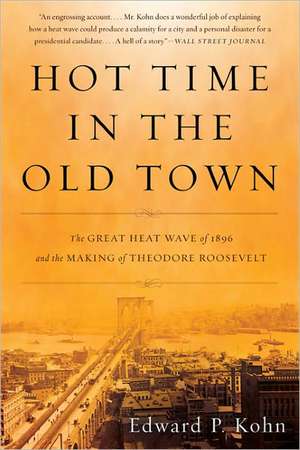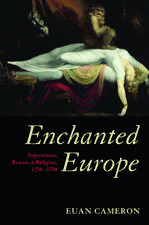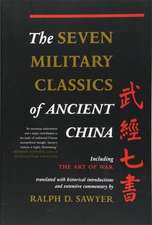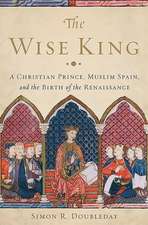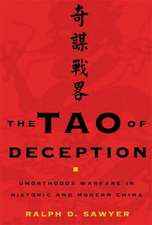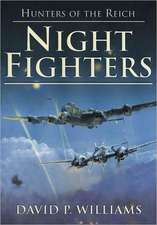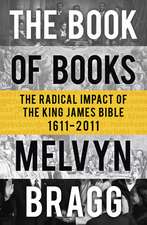Hot Time in the Old Town: The Great Heat Wave of 1896 and the Making of Theodore Roosevelt
Autor Edward P. Kohnen Limba Engleză Paperback – 11 iul 2011 – vârsta de la 13 ani
One
of
the
worst
natural
disasters
in
American
history,
the
1896
New
York
heat
wave
killed
almost
1,500
people
in
ten
oppressively
hot
days.
The
heat
coincided
with
a
pitched
presidential
contest
between
William
McKinley
and
the
upstart
Democrat
William
Jennings
Bryan,
who
arrived
in
New
York
City
at
the
height
of
the
catastrophe.
As
historian
Edward
P.
Kohn
shows,
Bryan's
hopes
for
the
presidency
began
to
flag
amidst
the
abhorrent
heat
just
as
a
bright
young
police
commissioner
named
Theodore
Roosevelt
was
scrambling
to
mitigate
the
dangerously
high
temperatures
by
hosing
down
streets
and
handing
out
ice
to
the
poor.
A
vivid
narrative
that
captures
the
birth
of
the
progressive
era,Hot
Time
in
the
Old
Townrevives
the
forgotten
disaster
that
almost
destroyed
a
great
American
city.
Preț: 175.75 lei
Nou
Puncte Express: 264
Preț estimativ în valută:
33.63€ • 35.21$ • 27.83£
33.63€ • 35.21$ • 27.83£
Carte tipărită la comandă
Livrare economică 07-21 aprilie
Preluare comenzi: 021 569.72.76
Specificații
ISBN-13: 9780465024285
ISBN-10: 0465024289
Pagini: 304
Dimensiuni: 140 x 210 x 22 mm
Greutate: 0.32 kg
Ediția:First Trade Paper ed.
Editura: BASIC BOOKS
Colecția Basic Books
ISBN-10: 0465024289
Pagini: 304
Dimensiuni: 140 x 210 x 22 mm
Greutate: 0.32 kg
Ediția:First Trade Paper ed.
Editura: BASIC BOOKS
Colecția Basic Books
Notă biografică
Edward
P.
Kohnis
assistant
professor
of
American
History
and
Chair
of
the
American
Culture
and
Literature
Department
at
Bilkent
University.
His
previous
works
includeThis
Kindred
People.
He
lives
in
Ankara,
Turkey.
Recenzii
Kirkus
Reviews(UK)
“In this solid history, Kohn makes good use of vivid details…. [He] paints an impressively multifaceted portrait of Gilded Age New York… the sections that deal directly with the plight of the working poor are riveting. Vivid history of a forgotten urban crisis.”
The Front Page (blog of the American Meteorological Society)
Edwin G. Burrows, co-author of the Pulitzer Prize-winningGotham: A History of New York City to 1898
“Hot Time in the Old Townis an enlightening account of the brutal 1896 scorcher that pushed the heat index in New York City above 120 for over a week, killing at least 1,300 people and driving countless others to bizarre acts of madness and despair. Along the way, Kohn makes a strong case that the most prominent casualty may well have been the presidential campaign of William Jennings Bryan, whose disastrous visit to the city during the height of the crisis helped win the White House for William McKinley. That same heat wave, Kohn reveals, also did wonders for the political career of the city’s dynamic young police commissioner, Teddy Roosevelt. History at its best.”
Kathleen Dalton, author ofTheodore Roosevelt: A Strenuous Life
“Kohn’s well-written and dramatic story of New York’s 1896 killer heat wave exposes vast human suffering and city government’s bumbling response, but it also gives us a fresh snapshot look at Police Commissioner Theodore Roosevelt and presidential candidate William Jennings Bryan responding to the moment of crisis during hot times. An entertaining slice of New York history!”
“In this solid history, Kohn makes good use of vivid details…. [He] paints an impressively multifaceted portrait of Gilded Age New York… the sections that deal directly with the plight of the working poor are riveting. Vivid history of a forgotten urban crisis.”
Wall
Street
Journal
“[A]n
engrossing
account
of
this
forgotten
episode….
Mr.
Kohn
does
a
wonderful
job
of
explaining
how
a
heat
wave
could
produce
a
calamity
for
a
city
and
a
personal
disaster
for
a
presidential
candidate….
[A]
hell
of
a
story.”
Roanoke Times
“Edward
Kohn’s
use
of
detail
in
telling
this
story
will
make
you
sweat
and
gasp
for
air.
You
will
feel
the
desperation
of
the
people
of
New
York
as
the
stale
air
and
sweltering
temperatures
visit
misery
on
America’s
largest
city....
Kohn
has
merged
good
story-telling
with
American
political
history.Hot
Time
in
the
Old
Townis
an
enlightening
tale.”
Library
Journal
“Although
the
1896
heat
wave
remains
a
minor
footnote
in
New
York
history,
Kohn
creates
a
solid
narrative
that
makes
for
absorbing
reading.
He
also
points
out
that
notwithstanding
huge
progress
made
to
improve
responses
to
heat
crises,
these
occurrences
continue
to
claim
many
lives
to
this
day.
Students
of
historical
meteorology
and
shows
likeWhen
Weather
Changed
Historywill
enjoy
this,
as
will
anyone
interested
in
off-beat
American
history.”
Publishers
Weekly
“[Kohn]
succeeds
in
bringing
this
little-known
tragedy
to
light.”
Bilkent
News
(University
of
Bilkent,
Ankara,
Turkey)
“[A] fascinating and well-researched tale about the impact of the needs of the local and disfranchised poor on national, even world, events. Kohn reminds historians that sometimes the best part of studying the past is listening for the narrative and resurrecting the stories of the obscure, the powerless, and the forgotten.”
“[A] fascinating and well-researched tale about the impact of the needs of the local and disfranchised poor on national, even world, events. Kohn reminds historians that sometimes the best part of studying the past is listening for the narrative and resurrecting the stories of the obscure, the powerless, and the forgotten.”
The Front Page (blog of the American Meteorological Society)
“Reading
Kohn’s
book
is
a
good
way
to
reflect
on
the
value
of
keeping
good
weather
impacts
statistics.”
Roll
Call
Edwin G. Burrows, co-author of the Pulitzer Prize-winningGotham: A History of New York City to 1898
“Hot Time in the Old Townis an enlightening account of the brutal 1896 scorcher that pushed the heat index in New York City above 120 for over a week, killing at least 1,300 people and driving countless others to bizarre acts of madness and despair. Along the way, Kohn makes a strong case that the most prominent casualty may well have been the presidential campaign of William Jennings Bryan, whose disastrous visit to the city during the height of the crisis helped win the White House for William McKinley. That same heat wave, Kohn reveals, also did wonders for the political career of the city’s dynamic young police commissioner, Teddy Roosevelt. History at its best.”
Kathleen Dalton, author ofTheodore Roosevelt: A Strenuous Life
“Kohn’s well-written and dramatic story of New York’s 1896 killer heat wave exposes vast human suffering and city government’s bumbling response, but it also gives us a fresh snapshot look at Police Commissioner Theodore Roosevelt and presidential candidate William Jennings Bryan responding to the moment of crisis during hot times. An entertaining slice of New York history!”
“Kohn
raises
two
novel
arguments:
that
the
heat
wave
was
responsible
for
destroying
William
Jennings
Bryan’s
political
career,
and
that
it
was
responsible
for
bolstering
that
of
Theodore
Roosevelt’s.”
Florida Weekly
“It
isn’t
easy
to
blow
the
dust
off
of
more
than
a
century
of
history
and
make
it
relevant
but
historian
Edward
P.
Kohn
has
managed
to
do
just
that….
[He]
recreates
this
event
with
such
graphic
detail
the
people
and
their
story
seem
to
literally
leap
from
the
printed
page….
It
is
this
humanization
and
Kohn’s
first
rate
research
that
give
this
highly
readable
book
its
literary
legs.”
St.
Louis Post-Dispatch
“[T]his
slender
volume
makes
for
interesting
reading
–
especially
if
you
read
it
in
the
summer
heat.”
Floral
Park Dispatch
Aida
D.
Donald,
author
ofLion
in
the
White
House:
A
Life
of
Theodore
Roosevelt
“Of the writing of books about Theodore Roosevelt there seems to be no end. But Edward P. Kohn's book is one that does not recycle old facts in new form. Here is a window on the world of Roosevelt that is entirely new. His activities during a fierce heat wave in New York City in 1896 that killed hundreds of people and horses is depicted in chilling episodes. City government was slow to act, but department heads like Roosevelt, who was police commissioner, took initiatives and showed the kind of leadership that led to future fame. With a wide lens Kohn scans this horrific happening during a critical campaign for president. His portraits of Roosevelt and his contemporaries are skillful and memorable.”
“Of the writing of books about Theodore Roosevelt there seems to be no end. But Edward P. Kohn's book is one that does not recycle old facts in new form. Here is a window on the world of Roosevelt that is entirely new. His activities during a fierce heat wave in New York City in 1896 that killed hundreds of people and horses is depicted in chilling episodes. City government was slow to act, but department heads like Roosevelt, who was police commissioner, took initiatives and showed the kind of leadership that led to future fame. With a wide lens Kohn scans this horrific happening during a critical campaign for president. His portraits of Roosevelt and his contemporaries are skillful and memorable.”
